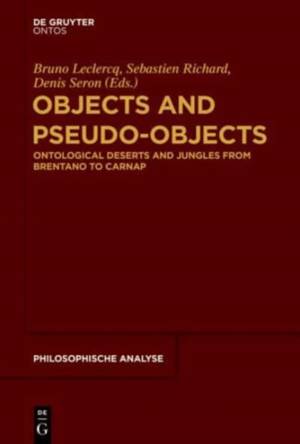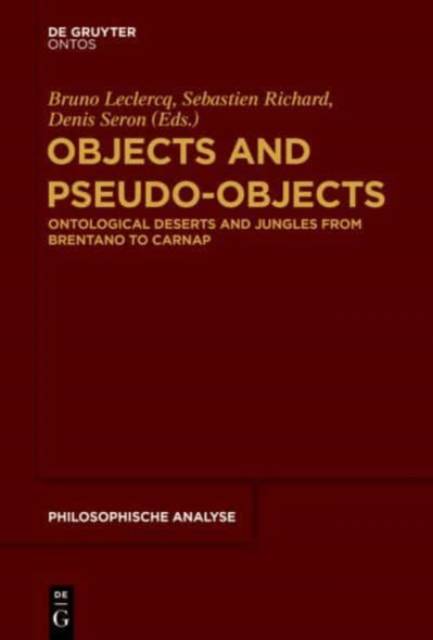
- Afhalen na 1 uur in een winkel met voorraad
- Gratis thuislevering in België vanaf € 30
- Ruim aanbod met 7 miljoen producten
- Afhalen na 1 uur in een winkel met voorraad
- Gratis thuislevering in België vanaf € 30
- Ruim aanbod met 7 miljoen producten
Objects and Pseudo-Objects
Ontological Deserts and Jungles from Brentano to Carnap
Omschrijving
The development of science, logic, mathematics, and psychology in the 19th century made it necessary to introduce a growing number of new entities, of which classical empiricism and strong extensionalism were unable to give a wholly satisfying account. One of the major issues confronting the 20th century philosophers was to identify which of these entities should be rationally accepted as part of the furniture of the world and which should not, and to provide a general account of how the latter are nevertheless subject to true predication. The 13 original essays collected in this volume explore some of the main approaches to this issue in the 20th century, including Brentano, Meinong, Husserl, Carnap, Frege, Twardowski, Kotarbinski, Nicolai Hartmann, and realist phenomenologists.
Specificaties
Betrokkenen
- Uitgeverij:
Inhoud
- Aantal bladzijden:
- 274
- Taal:
- Engels
- Reeks:
- Reeksnummer:
- nr. 62
Eigenschappen
- Productcode (EAN):
- 9781501510458
- Verschijningsdatum:
- 30/03/2015
- Uitvoering:
- Hardcover
- Formaat:
- Genaaid
- Afmetingen:
- 156 mm x 234 mm
- Gewicht:
- 603 g

Alleen bij Standaard Boekhandel
Beoordelingen
We publiceren alleen reviews die voldoen aan de voorwaarden voor reviews. Bekijk onze voorwaarden voor reviews.












